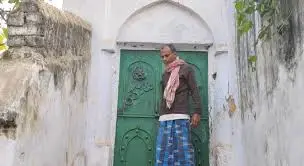For lone Muslim keeping azaan alive in this Bihar village, Waqf law is another reason to stay put

In a small village in Bihar, the azaan—the Islamic call to prayer—still echoes through the dusty lanes. This call happens five times a day. For many Muslims, it is a reminder of faith and unity. But here, in this village where the Muslim population is shrinking, the azaan carries a deeper meaning. It represents resilience, identity, and hope.
A lone Muslim man continues to call the azaan every day. Over the years, many villagers have left in search of better education, jobs, and opportunities. As a result, the Muslim community has grown smaller. Despite this, he has chosen to stay. For him, calling the azaan is more than just a religious duty. It is a way to keep his community’s heritage alive.
The azaan signals prayer times. However, in this village, it also acts as a powerful symbol. It shows that the Muslim community still exists. It says their faith remains strong, even as numbers dwindle. This is important in rural India. Religious minorities often face social and political pressures that threaten their culture. Therefore, maintaining the azaan is a form of quiet resistance. It allows the community to assert their identity and dignity.
The man understands this well. His presence bridges the past and the future. He reminds others that the spiritual heart of the Muslim community must keep beating, no matter what.
How Waqf Law Helps Protect Muslim Heritage
Another key reason the man stays is related to Waqf law. Waqf refers to religious endowments in Islam. These include mosques, graveyards, schools, and community centres. The Indian government protects these properties with laws that prevent misuse or illegal sale.
Waqf law helps keep Muslim properties in the hands of the community. It ensures that these places continue to serve religious or charitable purposes. This legal protection offers a sense of security. It lets Muslims preserve their places of worship even as their population changes.
In this village, the mosque is registered as a Waqf property. This means no one can sell or repurpose it without following strict legal rules. For the man who calls the azaan, this is more than just law. It is a lifeline for the community.
If he left, the mosque could fall into neglect. Worse, it might face illegal occupation or conversion. Thanks to the Waqf law, he feels motivated to stay. He wants to keep the mosque active and the azaan sounding every day.
Challenges of Staying Behind
Living in a village with few Muslims is not easy. The man faces isolation and limited support. Fewer people mean less help to maintain the mosque or join in prayers. Sometimes, the majority population shows hostility or ignores the Muslim community.
Still, he remains. His faith, sense of duty, and legal responsibility drive him. His story reflects a wider struggle. Many minority individuals across rural India face the same challenge. How do they keep their identity alive amid social change?
His determination highlights the need for community support. It also shows why governments must protect Waqf properties and promote harmony. Only then can minority groups sustain their religious institutions.
A Message of Hope and Continuity
Today, the azaan’s call reminds us that faith can survive hardship. The man’s commitment shows how powerful individual resolve can be. Waqf law plays a vital role in protecting minority heritage.
India is a diverse country. Stories like this one matter. They remind us that every community and tradition deserves respect and protection. The azaan in this village is more than a call to prayer. It is a message of perseverance, identity, and hope.
As the sun sets, the azaan sounds once again. It carries a message beyond religion. It says, “We are here. We will continue. Our faith and culture endure.”






